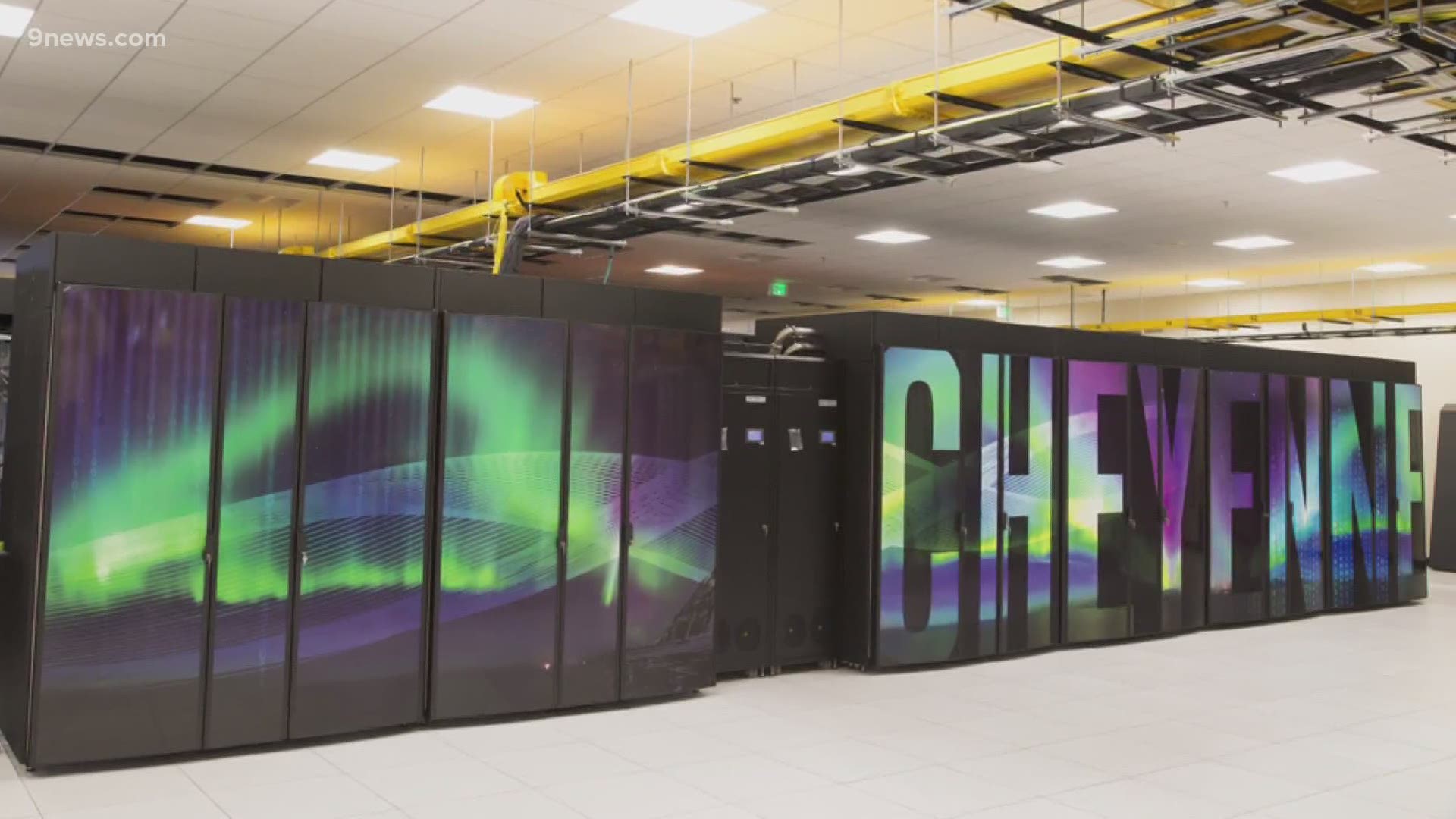CHEYENNE, Wyo. — Scientists all over world have been brainstorming new and ambitious research projects relating to COVID-19 -- from detailing the creation and structure of the new strand of coronavirus, to how it was spread, to possible treatments, vaccines and cures for the disease.
These projects require complex equations and computer models to crunch vast amounts of data and arrive at solutions.
Supercomputers will have to work overtime to meet the needs of all the scientists. That's why the White House has formed the COVID-19 High Performance Computing Consortium -- the country's high-tech all-star team of supercomputers from the public and private sectors, under the guidance of the U.S. Department of Energy.
The group includes supercomputers from places like Google, Amazon, IBM, Microsoft, Hewlett Packard, Massachusetts Institute of Technology and NASA.
The National Center for Atmospheric Research (NCAR) has also been added to the mix with its supercomputer located in Cheyenne, Wyoming appropriately named Cheyenne, in honor of the local city.
NCAR said it is one of the world’s 50 fastest supercomputers clocked at 5.34 petaflops.
“That means the Cheyenne computer is capable of performing five quadrillion mathematical calculations in a second,” said Dave Hart, a manager at NCAR's computational services lab. "It's got 400,000 computing nodes, and 145,00 processors."
Hart said that is the kind of processing power that will need to crunch the complex equations being put together by scientists.
“Researchers are coming up with new ideas daily to pursue solutions to disease treatments and other problems,” said Hart. "We've had 2-5 new requests every day since the consortium was formed."
Some of these projects have an incredible amount of data that need to be processed.
He hopes the complex equations and models that Cheyenne will run, can help find a better plan to stop the next virus from spreading, or maybe even help find a vaccine, or a cure for COVID-19.
“So we’re hoping that by participating, by offering all these resources, that we can at least contribute in some small way to addressing the problem that is facing all of us right now,” said Hart.
NCAR says that other science projects using Cheyenne will not have to be put on hold while researchers use it for COVID-19 research -- that there is enough supercomputer to go around for everybody.
SUGGESTED VIDEOS | Local stories from 9NEWS

